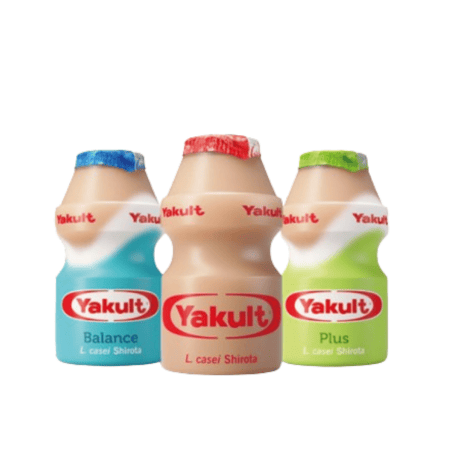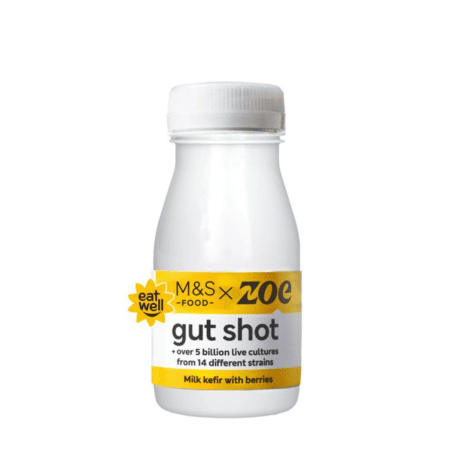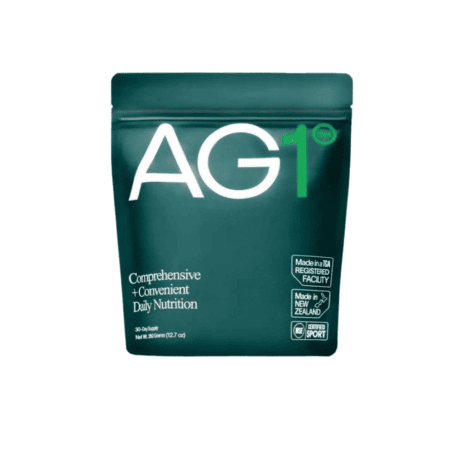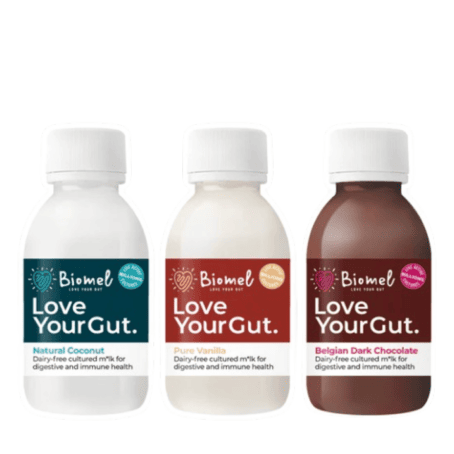- https://www.ncbi.nlm.nih.gov/pmc/articles/PMC4959178/
- https://www.jstage.jst.go.jp/article/bifidus/25/2/25_2_39/_article/-char/ja/The Effects of a Probiotic Milk Product Containing <i>Lactobacillus casei</i> Strain Shirota on the Defecation Frequency and the Intestinal Microflora of Sub-optimal Health State Volunteers: A Randomized Placebo-controlled Cross-over Study (jst.go.jp)
- https://www.sciencedirect.com/science/article/abs/pii/S1389172310001908

The Verdict
There is strong evidence to suggest that Yakult can bring about beneficial changes to the gut microbiome by encouraging the growth of Bifidobacteria. However, in order to maintain such benefits, it seems as though continuation of consuming Yakult is required. Finally, as with everything, further investigations are always advisable to strengthen the evidence to support these beneficial changes.
Reviews are for informational purposes only and do not constitute medical advice
Claims
Each little bottle of Yakult contains 20 billion L. casei Shirota bacteria
Increases bacteria in the gut
Yakult’s L. casei Shirota increase both the lactobacilli and bifidobacteria in the gut
The Research
L. casei Shirota YIT 9029 bacteria:
A double-blind, placebo-controlled trial conducted in 47 healthy participants found that consumption of a fermented milk product containing L. casei Shirota for 8 weeks significantly reduced gastrointestinal symptoms, stabilised stress levels prior to a stressor, increased the diversity of gut bacteria, and lowered the number of Bacteroidacea. The dose used was more than 1.0 x 10^11 CFU per 100ml bottle every day for 8 weeks.
This study was performed in collaboration with Yakult and the L. casei Shirota YIT 9029 was provided by Yakult. Therefore, it can be reasonable to accept that drinking this Yakult drink does provide these same benefits as observed in the study. However, the only differing factor is the serving size. In the study 100ml servings were provided to the participants. Whereas a bottle of Yakult is only 65ml. This may mean that one serving of the Yakult drink may not be as effective as drinking 100ml of it. It would be useful to investigate the effects provided by a 65ml sample. Having said that, the test serving contains matching amounts of L. casei Shirota bacteria, and so could bring about the same benefits.
Another study conducted in 40 healthy participants found that consumption of L. casei Shirota at a dose of 4 x 10^9 CFU/bottle per day for a total of 2 weeks found a statistically significant increase in bifidobacteria compared to the beginning of the study and to controls.
This dose used here is smaller than the amount of L. casei Shirota available in a single serving of Yakult original. Therefore, it could be safe to assume that Yakult would be effective at producing these same increases in beneficial bifidobacteria.
Finally, another study conducted in 34 healthy participants who consumed a fermented milk drink containing 40 billion CFU L. casei Shirota for 4 weeks every day found significant increases in bifidobacteria and short chain fatty acids (SCFAs). However, these changes returned to pre-investigation levels as soon as consumption of the fermented drink stopped.
It may be that you need to continue consuming Yakult to maintain the benefits it provides. Additionally, this study contained double the amount of L. casei Shirota bacteria than is provided in a single serving of Yakult. Therefore, just one drink of Yakult per day may not be as effective if going off the results from this study.
What's in it?
Ingredients: water, skimmed milk (reconstituted), glucose-fructose syrup, sugar, maltodextrin, flavourings. Contains L. casei Shirota.
READ THE RESEARCH
Related Products
Got a product you’d like us to review?
Got a product you want us to test? Or a topic you want to know more about? We want to hear it!




